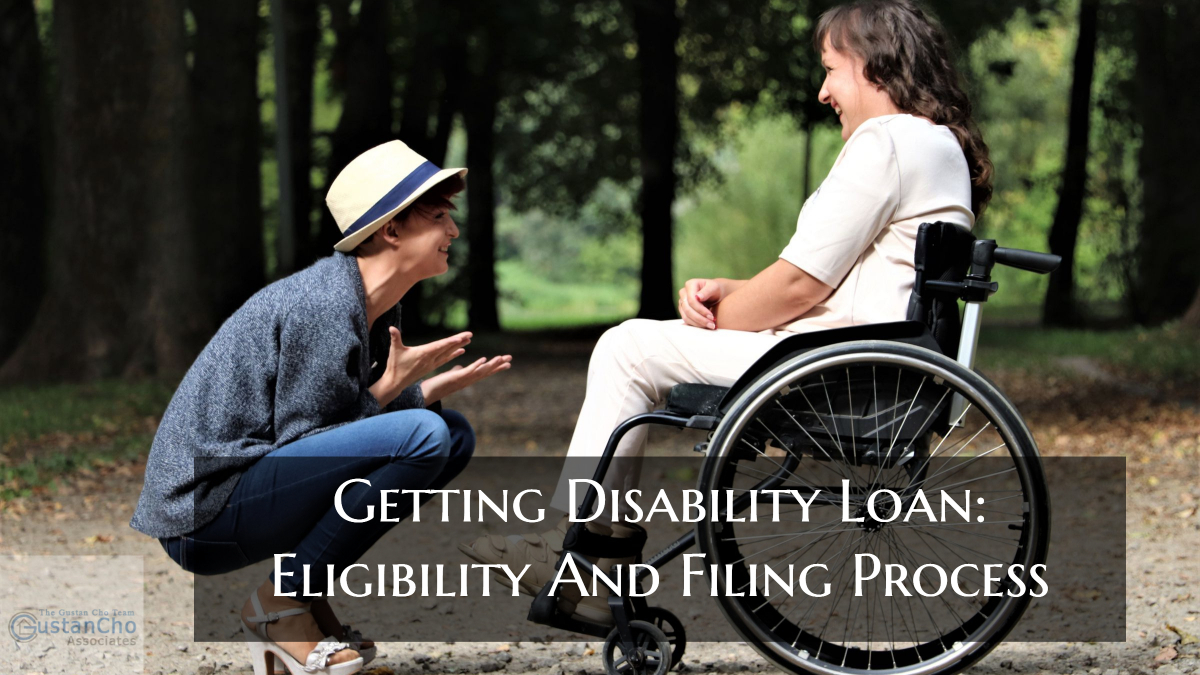This guide covers qualifying for a mortgage with disability income. People with disability income are eligible for a mortgage loan if they can document the income and the disability income is likely to continue for the next three years. The recipient of the disability needs to be able to repay their new home loan after closing. Studies have found that one in four people will be disabled before they retire. Being able to get a mortgage with disability income is essential.
Given that it is, more often than not, difficult to get a mortgage loan when facing physical incapability and no steady employment, people with permanent disabilities need shelter and a permanent roof over their heads by being able to get a mortgage with disability income.
Either some companies do not allow anyone with a disability to work under such circumstances, or someone who is disabled will have a hard time working; a loan, in this case, would be extremely helpful. Getting approved for a mortgage with disability income can work in one of two ways; if the borrower has a stable stream of disability income that is likely to continue for the next three years with past credit tradelines that have been timely, such as student loans, or if borrowers have a combination of a job and disability income with a two-year prior payment history and likely to continue for the next three years. In the following sections, we will discuss some points to consider before applying for a mortgage with disability income. In the following paragraphs, we will discuss qualifying for a mortgage with disability income.
Income Guidelines To Get a Mortgage With Disability Income
Given the recent surge in technological scams, to be eligible for a mortgage with disability income, you must prove that you cannot work due to a disability or a disease/illness, for instance. Medical conditions classified as a “disability” include musculoskeletal problems (i.e., Bone injuries), cardiovascular problems, speech issues, neurological disorders, mental disorders, cancer, hematological disorders, etc. With a musculoskeletal problem/neurological disorder such as quadriplegia, it can be quite difficult to do most tasks. With medical confirmation, a medical such as this one is eligible for acquiring a loan.
One main element of a loan, though, is paying it back eventually. If the person can also prove, they can somehow pay the loan back in a couple of months or years or have a relative or a family member that can pay for it. Another way that contributes to a disability loan is to get student loans discharged.
To be eligible for that, someone who is disabled must be near permanently disabled and will have a hard time paying back those student loans. A bank statement proving its difficulty and a first-hand family member (wife, husband, children, siblings, parents) must prove they cannot pay those fees.
How Can I Qualify For a Mortgage With Disability Income
One of the main points to be eligible for filing for a loan of this sort is to be from or a citizen of the country or state you are applying in. For instance, if you are a citizen of Canada, you must file in Canada and not the United States. The only instance that disregards this point is if the person has an immigrant status, but filing for that takes even longer and is much harder.
Home Loan and Mortgage Options For People With Disabilities
In the States and Canada, there are several ways to file for a mortgage loan with disability income. For instance, in Canada, there is “Mortgage Online Canada With Disability Income,” which can help those with a disability be able to apply for a mortgage loan. Generally, those pre-approvals take longer to get issued because everything in the mortgage process takes longer to complete.
Lenders need proof of an incoming settlement that will occur in the future for borrowers to be able to repay the mortgage loan. The application starts with general contact information and asks how much they need. It goes on to ask why they need a loan, for instance, to pay off student loans, bills, for leisure, bank debt, credit card consolidation, and several others.
The application is then processed, more specific and personal questions are asked, and more often than not, a face-to-face visit will be necessary. In Canada, especially in Ontario, having a disability is a weighty issue. Jeffrey Preszler from Preszler Law explains in the article “How Much Can I Receive on Disability?” that if an employer fired a disabled employee because of their disability, they may have violated the Ontario Human Rights Code.
Disability Income Employment Laws
According to the Americans with Disabilities Act, being fired from a job due to a disability can lead to a civil suit, as this is an act of discrimination. It is filed under wrongful termination, and a complaint to the Equal Employment Opportunity Commission should be pursued. The employer may not be sued for such an action if they provide excellent compromises or reconciliation for those with such an impairment. If the impairment truly does make a huge impact on the organization, then and only then can someone with a disability be terminated but still comply with reasonable compensation.
Social Security Disability Insurance Eligibility Guidelines
You can also apply for Social Security Disability Insurance, which has several steps. The first of which is a disability determination process (which is included in other forms of applying for a loan.
They must go through the Social Security Administration, the SSA, and Disability Determination Services (DDS), and when both give the green light, then will the candidate be considered. This can be via mail or in-person and must include a form that details the impairment, how it is being treated, and other proof of disability.
It must be noted that to apply for Social Security Disability Insurance, one of your previous jobs must have been covered by Social Security. In this process, you do not have to be permanently disabled to file for this loan. The process takes time to see whether the loan will be needed for one or two years or even more until it can be paid back.
Guide to Mortgages and Home Loan Help for the Disabled
People must know about five things before applying for a loan. Depending on what type of loan you are receiving, initially, most institutions equally regard someone who is disabled and someone without impairments. They look at five things, credit history, meaning that you have paid any previous credit on time and without a doubt.
Lenders will look at income, and these changes though when applying for a disability loan, as they look at previous income if you cannot work at all. Mortgage lenders will also have to look at monthly payment obligations to ensure you need the money to pay for rent, for example. The main thing they will also look at is the assets.
If the money cannot be paid back, getting a hold of assets will have to be the way to go. Finally, they look at the contact information. Most creditors or institutions need to assess disability income paperwork from the person asking for a loan. With disability loans, they go a step further, but that depends on the type of loan asked for. All in all, asking for a loan is difficult, and there can be many repercussions. Therefore knowing all risks and benefits is essential.









